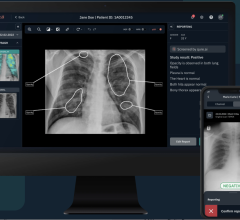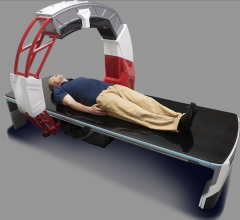
September 20, 2012 — Each autumn, with an eye on the winter months ahead, squirrels gather nuts to prepare for the inevitable change. Hospitals, medical facilities, doctors and long-term care facilities may be doing the same this fall, stocking shelves and purchasing items from their wish list and budgets before a new tax on most medical products goes into effect.
The Medical Device Excise Tax (MDET), a component of the Patient Protection and Affordable Care Act (PPACA), goes into effect after Dec. 31, 2012. The excise tax, 2.3 percent of the sale price, will be placed on the sale of most surgical instruments and medical devices by the manufacturer, producer or importer. Most medical devices intended for human use will be taxed, based on definitions used by the U.S. Food and Drug Administration (FDA). The tax does not apply to eyeglasses, contact lenses, hearing aids or any other medical device that the public generally buys at retail for individual use.
Most experts agree that the impact of the tax will be felt beyond 2.3 percent. The final sale price of applicable medical devices will also be affected by costs associated with administering, tracking, collecting and paying the tax. Companies will be responsible for making payments on medical products sold after Jan. 1, 2013, with the first tax payments due in April. It is estimated that half or more of the costs associated with MDET will be passed along in the form of higher priced products.
Robert Edelstein, president of Millennium Surgical Corp., a national supplier of specialty surgical instruments, is actively working with vendors, importers and suppliers to determine the effects of the MDET on the cost of their products.
"We are working to determine what effect the tax will have for our buyers. It will be interesting to see if the contracts that hospitals use will allow their vendors to increase cost," said Edelstein. "From my understanding the manufacturer selling through a group purchasing organization (GPO) will be paying the tax on the selling price." This means the fees the GPO collects, often 3 percent, and the rebates the hospitals collect will be taxable.
"Some contracted suppliers have healthy gross profits," noted Edelstein. "Others have a very small profit and the 2.3 percent could erase most of it."
Among the devices on the list of taxable items are medical equipment, surgical instruments, surgical supplies, custom packs, procedural kits and patient care products. Demo equipment, loaned and/or leased equipment, some devices used in veterinary medicine, those used in medical or clinical research, and dental instruments and products are also included. Sales contracts for medical software and IT systems will also be taxable. And future taxes may also be imposed on medical applications for smart phone and other mobile devices.
So what of the squirrels? Just like the squirrel who harvests in preparation for the tough season ahead, medical facilities that work with their finance departments and make smart purchases before Dec. 31 can reap the benefits. By purchasing before Jan. 1, 2013, not only will they avoid inevitably higher costs due to the tax, but they will also avoid the sudden and yet undetermined impact on their contracts and GPOs. Medical facilities that fail to plan ahead may find themselves left out in the cold.
For more information: www.irs.gov/pub/newsroom/reg-113770-10.pdf


 August 09, 2024
August 09, 2024 








